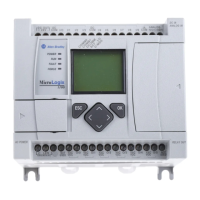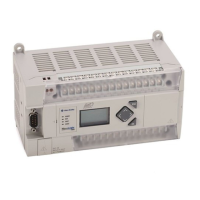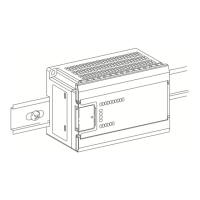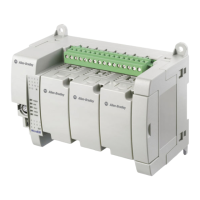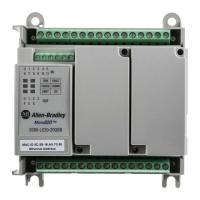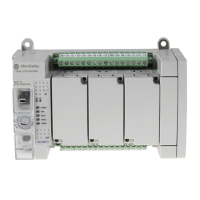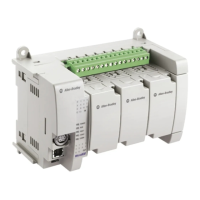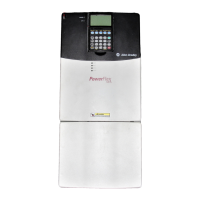Publication 1762-RM001C-EN-P
Using Interrupts 18-11
UIF - User Interrupt
Flush
Instruction Type: output
The UIF instruction is used to flush (remove pending interrupts from the
system) selected user interrupts. The table below shows the types of
interrupts with their corresponding flush bits:
To flush interrupt(s):
1. Select which interrupts you want to flush.
2. Find the Decimal Value for the interrupt(s) you selected.
3. Add the Decimal Values if you selected more than one type of
interrupt.
4. Enter the sum into the UIF instruction.
For example, to disable EII Event 1 and EII Event 3:
EII Event 1 = 32, EII Event 3 = 4
32 + 4 = 36 (enter this value)
UIF
User Interrupt Flush
Interrupt Types 1
UIF
Table 18.8 Execution Time for the UIF Instruction
Controller When Rung Is:
True False
MicroLogix 1200 12.3
µ
s0.0
µ
s
MicroLogix 1500 10.6
µ
s0.0
µ
s
Table 18.9 Types of Interrupts Disabled by the UIF Instruction
Interrupt Element Decimal
Value
Corresponding
Bit
EII - Event Input Interrupts Event 0 64 bit 6
EII - Event Input Interrupts Event 1 32 bit 5
HSC - High-Speed Counter HSC0 16 bit 4
EII - Event Input Interrupts Event 2 8 bit 3
EII - Event Input Interrupts Event 3 4 bit 2
HSC - High-Speed Counter
(1)
(1) The MicroLogix 1200 has one HSC Interrupt, HSC0. The MicroLogix 1500 has two, HSC0 and HSC1.
HSC1 2 bit 1
STI - Selectable Timed Interrupts STI 1 bit 0
Note: Bits 7 to 15 must be set to zero.
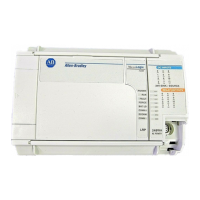
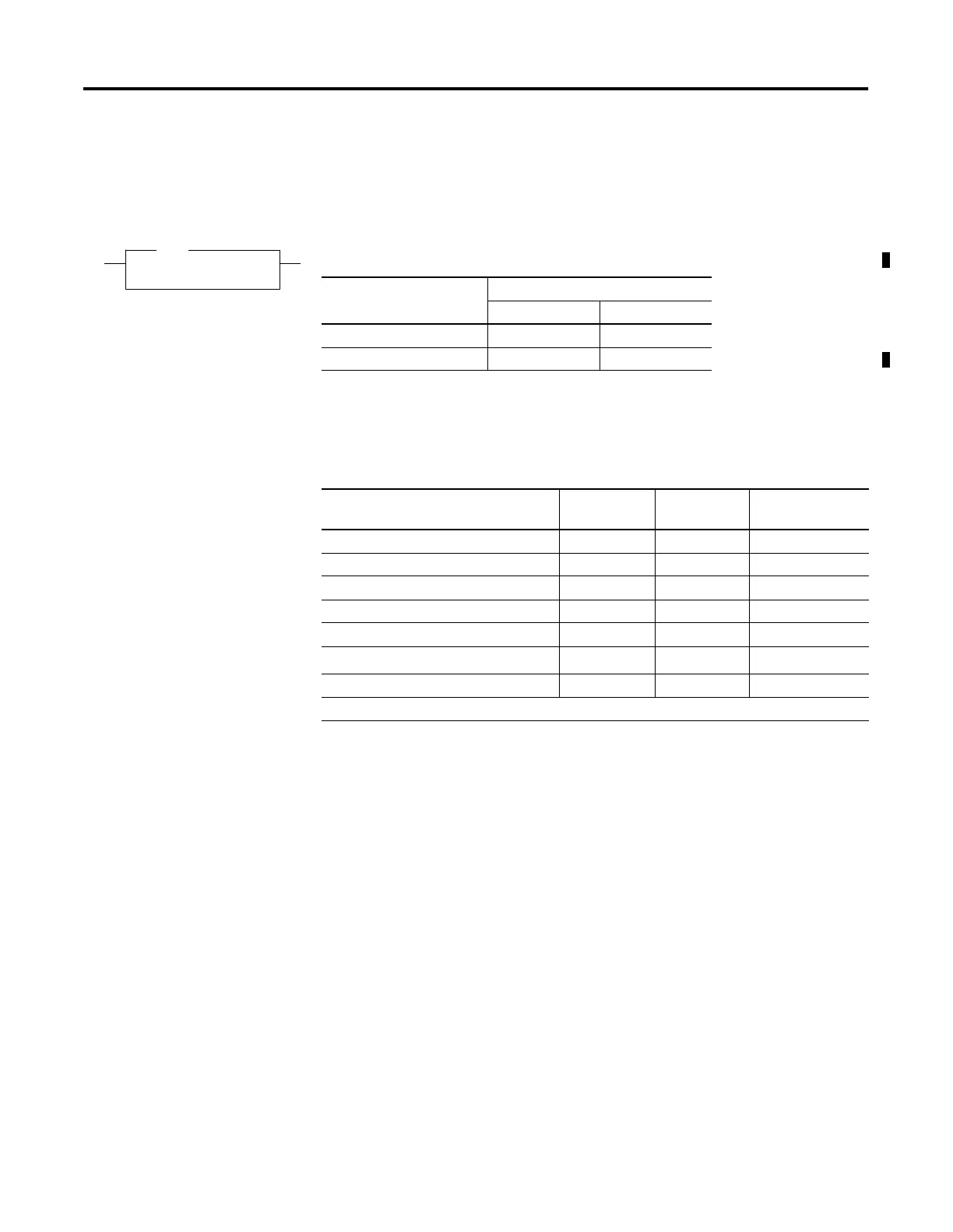